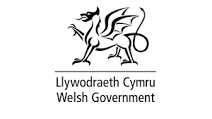PRESS RELEASE : Tackling educational disadvantage for children in care [October 2012]
The press release issued by the Department for Education on 11 October 2012.
The Ofsted report, published today, explores the impact virtual schools have on tackling the educational progress of these children.
Virtual schools are established by many local authorities and work with children looked after across their catchment as if they were in one school, liaising with the schools they attend, tracking the progress they make and supporting them to achieve as well as possible.
‘The impact of virtual schools on the educational progress of looked after children’ report explores the impact of virtual schools in 9 local authorities, examining cases and looking at the effectiveness of education support for children in care.
In the local authorities visited, virtual schools have raised the profile of educational attainment for children in care, promoted much better communication between professionals, increased the involvement of carers in children’s education, and helped to improve attendance and reduce exclusions.
However, there was little evidence that they were yet able to reduce the attainment gap between children looked after and their peers. Progress between key stages 3 and 4 was generally slower than during earlier key stages, and improving the percentage of those attaining 5 or more GCSEs at grades A* to C, including English and maths, remained a challenge for most authorities.
Budget constraints have also led to a significant reduction in the capacity of virtual schools in some local authorities. Although most of the local authorities were able to protect existing resources, nearly all expressed concerns about the future.
Deputy Chief Inspector for Ofsted, John Goldup said:
There is much that is hugely positive in this report, and some of the examples of the difference that the virtual school has made to the lives of individual children are truly inspiring. These successes need to be celebrated and built on. However, the life chances of too many children in care are still blighted by poor educational outcomes. While some planning and target setting is very good, expectations are too often too low, particularly for children who have the capacity for high attainment.
The role of councillors is crucial. Local authorities are parents to these children. Virtual schools are at their most effective where corporate parenting is strong and challenges and supports the virtual school effectively.
In every local authority visited, the virtual school took the lead in ensuring that education was central to planning and reviewing children’s care. For example, in Hampshire a literacy scheme for children in care was set up which increased the average reading age by 11 months through a 16-week programme, while in Cornwall the systematic use of data to track and action educational progress had reduced the attainment gap between children in care and their peers, particularly at GCSE level.
The impact of virtual schools was mostly positive. They were often very effective in influencing schools to take more account of the needs and circumstances of looked after children, supporting designated teachers, supporting and training foster carers and residential care staff, and in working with social workers who often felt a lack of confidence and expertise in relation to children’s education – to quote one, ‘I am hopeless with school stuff’.
However, the report found that several virtual schools had not established clear eligibility criteria, which meant that services were not always effectively targeted for those children who most needed additional support. And while there were good examples of personal education plans (PEP), too many were not sufficiently focused on academic achievements. PEPs were more likely to effectively address the needs of children who were performing below expectations. They were generally less effective for children who were meeting expectations but could do even better.
There was also a lack of clarity and knowledge among professionals about the appropriate use of the Pupil Premium. This sometimes hindered the ability of authorities to question and challenge schools about how a particular child was benefiting from the funding and whether the school was meeting the child’s needs.
The report makes a number of recommendations to local authorities to assist them in ensuring that a virtual school has maximum impact on improving educational outcomes for children in care. It also recommends that government should consider whether there should be a statutory duty on authorities to establish and maintain robust virtual school arrangements.



